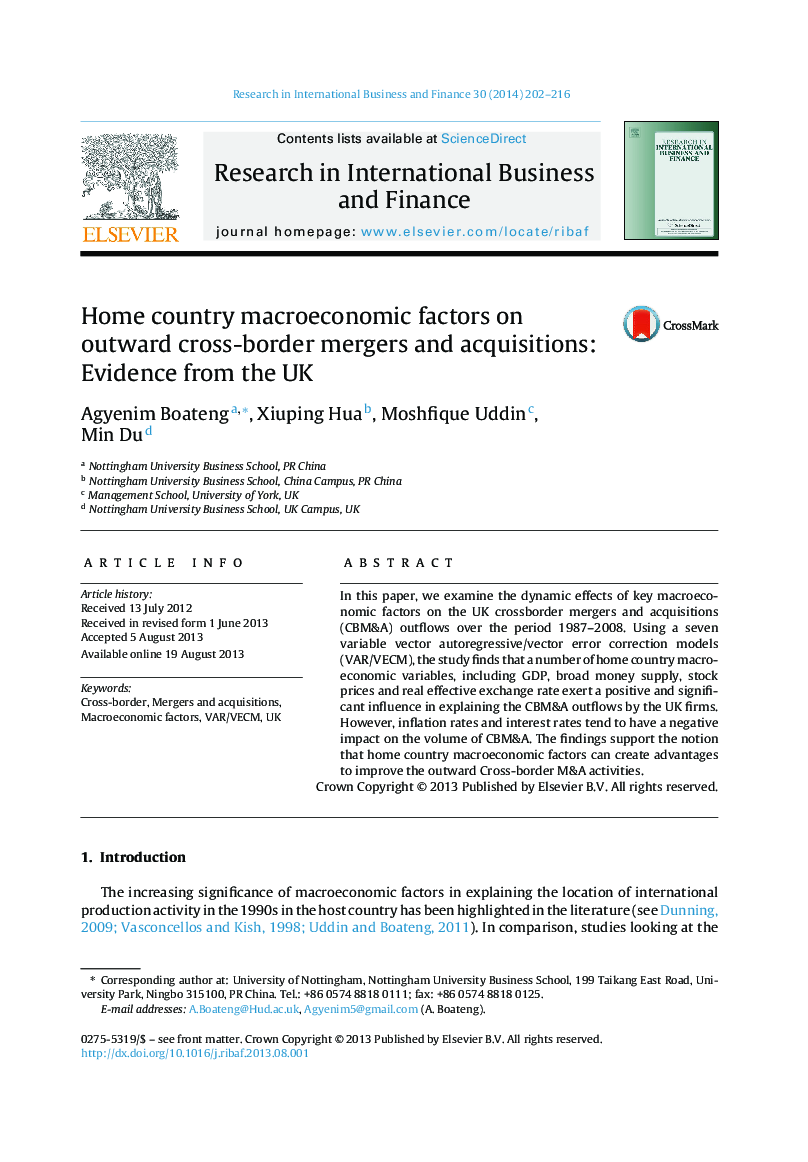| Article ID | Journal | Published Year | Pages | File Type |
|---|---|---|---|---|
| 1002928 | Research in International Business and Finance | 2014 | 15 Pages |
•We examine the dynamic effects of key macroeconomic factors on the UK cross-border mergers and acquisitions (CBM&A) outflows over the period 1987–2008.•The study finds that a number of home country macroeconomic variables, including GDP, broad money supply, stock prices and real effective exchange rate exert a positive and significant influence in explaining the CBM&A outflows by the UK firms.•However, inflation rates and interest rates tend to have a negative impact on the volume of CBM&A.•The findings support the notion that home country macroeconomic factors can create advantages to improve the outward Cross-border M&A activities.
In this paper, we examine the dynamic effects of key macroeconomic factors on the UK crossborder mergers and acquisitions (CBM&A) outflows over the period 1987–2008. Using a seven variable vector autoregressive/vector error correction models (VAR/VECM), the study finds that a number of home country macroeconomic variables, including GDP, broad money supply, stock prices and real effective exchange rate exert a positive and significant influence in explaining the CBM&A outflows by the UK firms. However, inflation rates and interest rates tend to have a negative impact on the volume of CBM&A. The findings support the notion that home country macroeconomic factors can create advantages to improve the outward Cross-border M&A activities.
